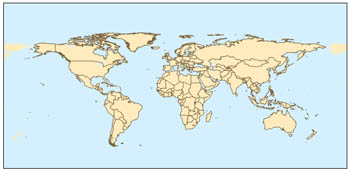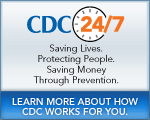Influenza Prevention: Information for Travelers
The risk for exposure to influenza during travel depends somewhat on the time of year and destination.
- In the Northern Hemisphere, the flu season can begin as early as October and can last as late as April or May.
- In the temperate regions of the Southern Hemisphere, influenza activity occurs typically during April--September.
- In the tropics, influenza occurs throughout the year.
- Travelers in the Northern and Southern Hemispheres can be exposed to influenza during months that fall outside of those listed above, especially when traveling as part of large tourist groups (e.g., on cruise ships) that include persons from areas of the world in which influenza viruses are circulating.
- For more information, see the section "Travelers" in the Advisory Committee for Immunization Practices (ACIP) influenza guidance.
CDC recommends that everyone 6 months and older get a flu vaccine yearly.
- Everyone 6 months and older should get a flu vaccine yearly, preferably in the fall before the U.S. flu season begins.
People traveling to parts of the world where influenza activity is ongoing, and who have not gotten the vaccine for the current season, should get a flu vaccine to protect themselves while on their trip.
- This is particularly important for people at high risk of flu-related complications.
- The flu vaccine used in the Northern Hemisphere usually protects against the main viruses that have been circulating in other parts of the world.
People should get vaccinated at least two weeks before travel because it takes two weeks for vaccine immunity to develop after vaccination.
- No information is available about the benefits of getting revaccinated before summer travel for those people who already were vaccinated during the preceding fall, so revaccination is not recommended.
- Keep in mind that influenza vaccine manufactured for the upcoming or current season usually expires the following June. After June, flu vaccines are usually not available in the U.S. until the influenza vaccine for the next season is produced and made available sometime in the fall.
- Also, if you receive the previous season’s vaccine before travel during the summer months, that coming fall or winter you should still receive the new flu vaccine.
More Information for Travelers
- If you are sick with symptoms of influenza-like illness, you should not travel. These symptoms include fever, cough, sore throat, runny or stuffy nose, muscle or body aches, headache, and fatigue. Some people may have vomiting and diarrhea, though this is more common in children than adults. It’s important to note that not everyone with flu will have a fever.
- If you are sick, stay home until at least 24 hours after you no longer have a fever (at least 100°F [37.8°C] ) or signs of a fever (without the use of a fever-reducing medicine, such as Tylenol®).
Travel Preparation
- Investigate current flu activity in your region of travel. The Centers for Disease Control and Prevention provide frequently updated information on seasonal flu activity throughout the world.
- Additional Travel Resources:
- CDC: Flu and Travel
- CDC: Information for Travelers (General): Air Travel and Cruise Ships
- CDC: Travelers' Health Website (General)
- CDC: Visit the CDC Travelers Health Map. Select from a list of regions.

During and After Your Trip
During your trip, follow local guidelines and practice healthy habits
Pay attention to announcements from the local government and monitor the local health and security situation.
Follow any movement restrictions and prevention recommendations.
Wash your hands often with soap and running water, especially after coughing or sneezing. (Use alcohol-based hand gels — containing at least 60% alcohol — when soap is not available and hands are not visibly dirty.)
Cover your mouth and nose with a tissue when you cough or sneeze, and put your used tissue in the trash. If you don't have a tissue, cough or sneeze into your upper sleeve, not your hands.
Avoid close contact with sick people.
What to do if you feel sick
It is expected that most people infected with flu will recover without needing medical care. If you have severe illness or you are at high risk for flu complications, seek medical care.
A U.S. consular officer can help you find local medical care in a foreign country. To contact the U.S. embassy or consulate in the country you are visiting, call Overseas Citizens Services at:1-888-407-4747 if calling from the U.S. or Canada, 00-1-202-501-4444 if calling from other countries, or visit websites of U.S. Embassies, Consulates, and Diplomatic Mission to find the contact information for the local U.S. Embassy of the country you are visiting.
Follow all local health recommendations.
Tips for After Your Trip
Closely monitor your health for 7 days. If you become ill with flu symptoms, seek medical attention if they are severe.
Contact Us:
- Centers for Disease Control and Prevention
1600 Clifton Rd
Atlanta, GA 30333 - 800-CDC-INFO
(800-232-4636)
TTY: (888) 232-6348 - Contact CDC-INFO



